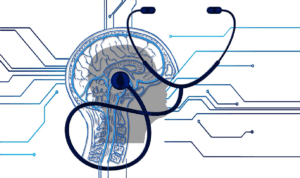Promoting Neurodiversity in the Workplace
Supporting Employees’ Unique Strengths
In today’s modern workplace, fostering an inclusive environment that embraces neurodiversity has become increasingly important.
Neurodiversity refers to the wide range of variations in the human brain, including autism, ADHD, dyslexia, and other neurological differences. Recognising and accommodating these differences can lead to a more productive, innovative, and harmonious work environment. In this article, we will explore several strategies that employers can employ to support neurodiverse employees and create an inclusive workplace culture.
Raising Awareness and Providing Education
The first step towards promoting neurodiversity in the workplace is to raise awareness and provide education about different neurodiverse conditions. Employers can organise workshops, seminars, or guest speakers to help employees understand the strengths, challenges, and unique perspectives of neurodiverse individuals. By fostering empathy and understanding, this knowledge can help reduce stigma and create a supportive environment.
Flexible Work Arrangements
Implementing flexible work arrangements can greatly benefit neurodiverse employees. Some individuals may have sensory sensitivities, difficulty with transitions, or other challenges that can be mitigated through flexible scheduling or remote work options. By allowing employees to adapt their work environment to suit their needs, employers empower them to perform at their best.
Accommodations
Providing reasonable accommodations is a key component of supporting neurodiverse employees. Accommodations can range from minor adjustments to the physical workspace, such as providing noise-cancelling headphones or adjustable lighting, to modifying work processes or providing assistive technologies. Regular communication with employees about their needs and preferences is essential for identifying and implementing appropriate accommodations effectively.
Clear Communication and Instructions
Clear and concise communication is essential for all employees, but it is especially important for neurodiverse individuals. Employers should ensure that instructions, expectations, and feedback are conveyed in a straightforward manner, using visual aids or written documentation whenever possible. Providing additional time for processing information and allowing for questions or clarifications can also be beneficial.
Mentoring and Coaching Programs
Establishing mentoring and coaching programs can greatly support neurodiverse employees by providing them with guidance and support. Pairing them with experienced colleagues who can provide feedback, assistance, and guidance can help them navigate the workplace environment more effectively. Mentoring programs can also
If you would discuss this further please feel free to get in touch.

